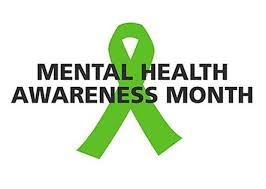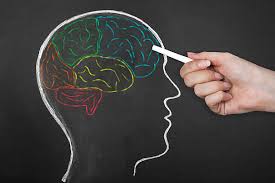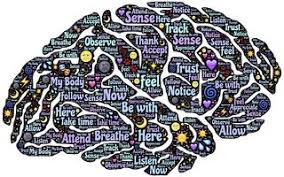
May is Mental Health Month, which means it’s the perfect time to talk about ways to maintain and establish some routines to promote our mental health and well-being. But what is mental health? Mental health is more than just the absence of mental illness, just like physical health is more than the absence of physical disease.
Maintaining health is the ongoing process of nourishing your mind, body, and soul with the things you need, and cleansing it of the things you don’t need! You need to replenish your body with food, vitamins, water, and other vital nutrients to have physical energy and to keep your muscles strong and your organs properly functioning. Likewise, you need to replenish your mind with the nutrients it needs in order to have mental energy for the work that your brain needs to do. Just like you need to refill your car’s gas tank and keep it full so that your car can run smoothly and properly, your mind and body need to be properly filled up to operate and function as they are supposed to.
In the difficult and uncertain circumstances we currently find ourselves in, it is more important than ever that we recognize the things that can take away from our mental health, and how to gain it back! One of the biggest factors that depletes our mental energy banks and leads us to an unhealthy mental or emotional state of functioning is stress. Stress takes a huge toll on both our bodies and brains! Stress in itself is not a bad thing – stress activates the part of our brain that releases hormones such as adrenaline to get us prepped and ready to respond to something big happening – whether physically or mentally. But when we experience multiple stressors at a time – big changes to our routines, repeated unexpected transitions, and other major disruptions to our normal state of functioning, it can very quickly deplete our mental energy tanks. When ongoing stress activates our brains and bodies in this way over and over again, it starts to take a toll. When this happens, our brains and bodies don’t have time to recover from the first stressor and return to a state of calm regulation, or de-activation, before they are activated once again in preparation for the next stressor.
So how do we know if a person is experiencing a normal amount of stress, or managing it fairly successfully, and when their mental energy tank is running low? There are several general indicators that we can look for that can tell us a person is emotionally unhealthy or mentally depleted. These can include the person being easily upset, seeming to overreact to situations much of the time, having difficulty regulating or responding to their emotions, being easily distractible and unable to focus, being easily overwhelmed, struggling with impulse control, or having a low frustration tolerance. When a person, whether child or adult, just doesn’t seem like themselves, or you notice any big or significant changes to their presentation that lasts for a significant period of time, they may be in an unhealthy state emotionally.
So what do we do about it? How can we refill our mental energy tanks, and when is it time to get some additional support or treatment? Some of the things each of us can work to incorporate into our everyday lives to fill up our mental energy tanks include the following: increasing structure and choices, giving a person prep time for transitions, empathizing with them, allowing for rest, participating in activities that activate our brain’s frontal lobe, and providing our brains and bodies proper nourishment through healthy food and sleep patterns, extra vitamin D, and other necessary nutrition. When we replenish our mental gas tank with rest, purposeful activities, stability, and emotional co-regulation, we can set ourselves up for mental health, even in the midst of uncertain circumstances.
 | Our frontal lobe (the part of our brains right behind our foreheads) is responsible for all of our executive-functioning (EF) skills - these include our planning, organizing, regulating, and problem-solving skills! When a person goes into emergency mode (which can be activated by any big feelings or overwhelming experiences), their frontal lobe shuts down and they aren't able to access or use these EF skills! Helping a person learn how to stay in their frontal lobe, even when upset or bothered, is a big part of what we do in therapy! |
Emotional regulation is the ability to manage feelings and function in a steady state. Before a person can learn how to regulate their emotions on their own, self-regulation, they have to have lots of experiences of co-regulation - calming down by experiencing another person being calm (regulated). When a person is very upset and goes into emergency mode, the fastest and most effective way to help them is by co-regulating with them! When they experience your deep breathing, steady heartbeat, and in-control state, they begin to feel regulated once again. |  |
Remember to trust your gut – if it seems like a person needs professional support, or you’ve attempted to incorporate some of these things into your family’s home routine and someone is still struggling, it may be beneficial to reach out to a clinical therapist for additional support or treatment services.
We are here for you and want to help your families maintain health and wellness! Check out our website or connect with us on social media to learn more about mental health and well-being; we’d love to hear from you!

-Diana Osipsov, LMSW
Owner/Clinical Therapist
Roots Therapeutic Specialty Services


